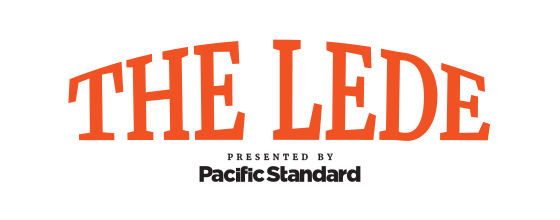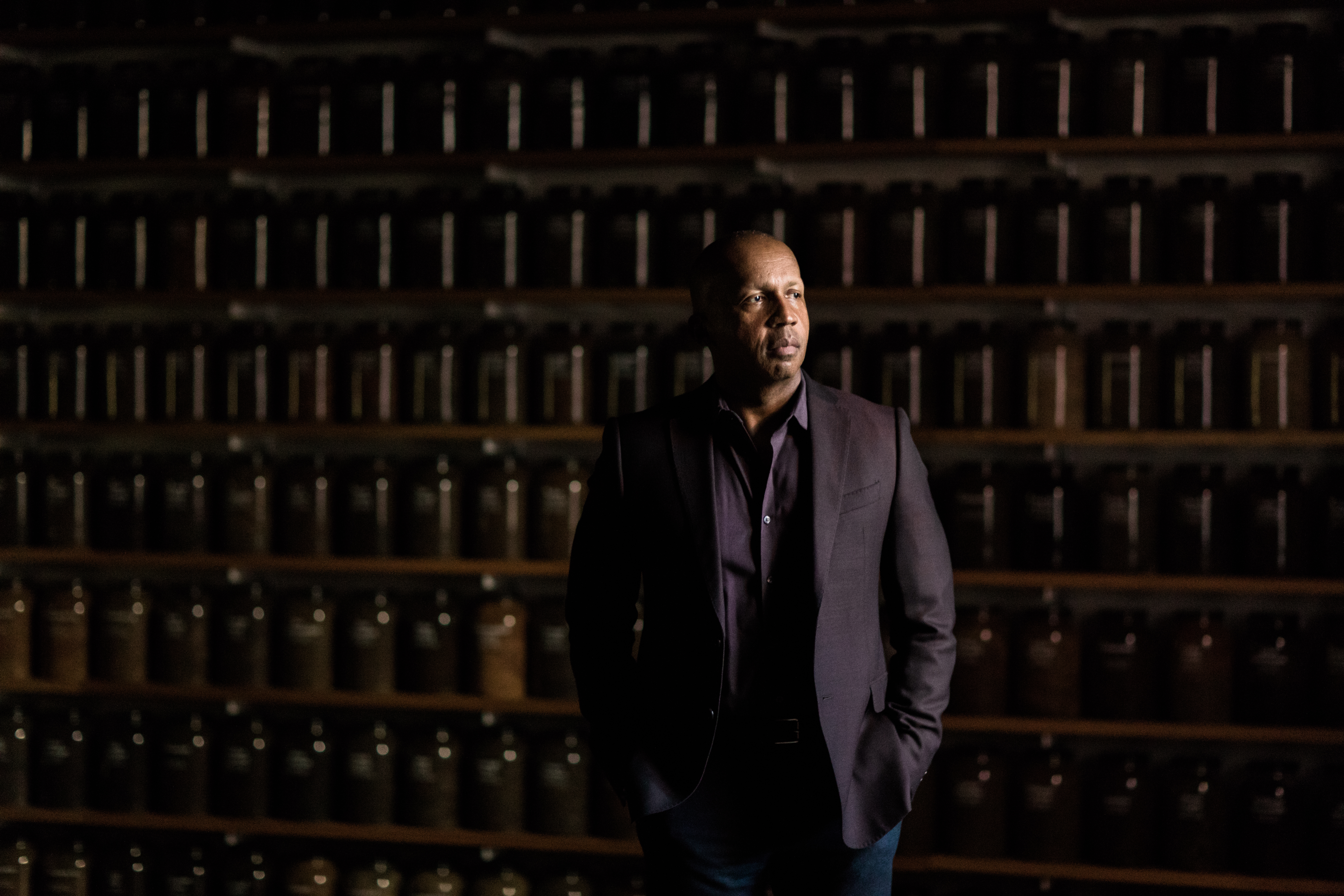Welcome to The Lede

The Lede is a new weekly newsletter giving premium members greater access to Pacific Standard stories, staff, and contributors.
For the rest of the month, The Lede will be openly available. We want to give readers a sense of one part of the exclusive content they will receive as a PS Premium member—in addition to eight print issues, early access to feature stories, data privacy, and ad-free access to our site. All for just $3.99 a month.
Most importantly, memberships help support stories that make a difference.
Early Access for Premium Members
This coming Tuesday we will publish “Now I Just Want to Hit Something,” a look at small-town economics and demolition derby, on PSmag.com. This 8,000-word feature by the award-winning J.C. Hallman can be found in the February issue of Pacific Standard, on newsstands now. We’re currently building out the functionality so that, starting next week, all premium members will receive early access to our biggest stories, like this one. Until then, here’s an excerpt from the piece as well as behind-the-scenes photos the author took while reporting:
It’s easy enough to describe what happens in a demolition derby, and each of the accounts I’d read had found a new way to say that a bunch of cars run into each other, and it’s loud. But that doesn’t really do it justice. There is no single storyline to demolition derby. Unlike a football game, there is no ground to take, no points to score. There is only mayhem and survival. I’d been on the right track in asking my Lithuanian artist friend to paint up the Rambler like a Pollock drip dream, but the truth was that demolition derby did not so much remind me of Jackson Pollock, as reveal the chaos that Pollock had attempted to capture on canvas. And for what it’s worth, the first night of demolition derby at the 2016 Skowhegan State Fair fell on the 60th anniversary, plus one day, of the death of Jackson Pollock. He was reportedly decapitated in an automobile accident on Long Island.



Echoes of Authoritarianism
Abdulla Yameen, the president of the Maldives, is continuing his authoritarian overhaul of the state. Yameen came into power via a controversial election in 2013, and subsequently imprisoned his campaign opponent, former journalist Mohamed Nasheed, for nine years on dubious charges. Earlier this week, the New York Times reported that he has now declared a state of emergency and ordered the arrests of two Supreme Court judges, a former president, as well as other political opponents.
In light of these events, we want to point to a Pacific Standard story that was on this topic, in an in-depth way, long before many other American outlets. Last July, Lois Parshley documented this troubling political devolution in terrifying and stark detail. Parshley profiled investigative journalist and top editor of the Maldives Independent Zaheena Rasheed, who fled the country after her reporting revealed a state-sponsored money laundering scheme. The story also outlines Yameen’s authoritarian tactics: his intimidation of the press, his association with gangsters, and his prosecutorial pursuit of his enemies.
According to political scientists and human rights advocates, Yameen’s behavior is part of a new model of “market authoritarianism,” in which leaders attempt to use “the trappings of former democracy,”—a judicial system, for example—to distract citizens from the gradual corruption of their government. What is so chilling about Parsley’s story is that Zaheena saw glimmers of these authoritarian traits in our own president.
Zaheena and other journalists were often dismissed as alarmists due to their voicing concerns about Yameen’s actions. A critique often leveled at those raising concerns about President Trump’s actions. Back in July, Zaheena had these words of advice to her U.S. counterparts, “In many ways we weren’t alarmist enough. This is something American journalists will have to keep in mind. Don’t give in to those labels.”
As the political environment in America continues to evolve, in increasingly troubling ways, it’s more and more important to look outside our borders for important context and understanding of how to deal with our country’s shifting socio-political dynamics. We are committed to bringing these stories to our readers through this kind of reporting, so that they can make informed, thoughtful decisions and hold our government officials to account.

Bryan Stevenson’s Quest for Justice
An excerpt from Jack Denton’s brief biography of public defense lawyer and director of the Equal Justice Initiative, Bryan Stevenson, ran alongside our most recent PS interview, “What Well Meaning White People Need to Know About Race,” written by contributing writer James McWilliams. This excerpt covers the point in his life when Stevenson decided to dedicate his life to pursuing equality through the legal system:
During his joint study at Harvard Law School and the Kennedy School of Government, Stevenson grew disillusioned with the coursework, which he saw as disconnected from the social issues that drove him toward law in the first place. This changed one December when he flew to Atlanta for an internship with the Southern Prisoners Defense Committee. The organization’s legendary director, Stephen Bright, happened to be seated near Stevenson on the flight, and their conversation that day reinvigorated Stevenson’s excitement about lawyering in pursuit of racial and economic justice.
Read the rest of Denton’s capsule biography here.
PS Picks
PS Picks is a selection of the best things that the magazine’s staff and contributors are reading, watching, or otherwise paying attention to in the worlds of art, politics, and culture.
Emily Mester’s new essay for BuzzFeed on Costco contains budget deals on coffins, a hoarding father, the unsettling newness of old things, and the well-loved oldness of new things. It’s about many Americas and the empty parking lots in between. Sharply observed and rich with detail, it’s probably safe to say that Mester wrote this thing at a Costco, which “lacks the earthy bourgeois glamour of Whole Foods, or Target’s warm graphic buoyancy, or the hot American urgency of 7/11.” Many of the essays in BuzzFeed Reader’s recent series on class are worth your time—including this one from Alexander Chee—but above all, Mester on Costco is unmissable.
—Varun Nayar, Web Producer
Six months ago, Molly Osberg nearly died after inhaling a flesh-eating bacteria. Doctors struggled to understand why all her organs were shutting down, and she was put in a medically induced coma while they worked on her. Now she’s gone back to interview those doctors, painting a persuasive and grim picture of what would have happened to her without health insurance in a new piece for Splinter: “On that second Tuesday in June 2017, I found myself in what I worry could be a fleeting moment in my life, one in which the institutions around me find it advantageous to protect rather than screw me. I find it baffling that, since my illness, well-meaning people have repeatedly referred to me as a “survivor,” as if the fact that I got to go on with my life had to do with some inherent moral strength, rather than the material forces put in motion long before I got sick.” It’s a piece everyone should read if you’re at all concerned with basic inequality.
—Ted Scheinman, Senior Editor
The Washington Post and the New York Times each have great stories about “No Mates” Nigel, a gannet who landed and lived and died on a small island near New Zealand. The island was covered with 80 concrete gannets, placed there by conservationists who had hoped the decoys would attract a reproducing colony of the native seabirds—but, for many years, only Nigel was fooled. Like many around the world right now, I can’t stop thinking about Nigel, and about the tragicomic ways humans try to repair the damage we’ve done to ecosystems and animals around our planet. Check out the Post story for writing style and the Times for extra info.
—Francie Diep, Staff Writer
PS in the News
A look at where our stories and staff surface in the national conversation.
- Nadirah Farah Foley wrote about combating inequality in college admissions, sparking an Inside Higher Ed article that asks whether there is enough diversity among college admissions officers.
- Michael White spoke to NPR Phoenix about his writing on the promising future of gene therapy.
- Tom Jacobs on how liberals can use nostalgia to change conservatives’ minds appeared in the Washington Post‘s Happy Hour Roundup.
The Conversation
“Tragedy of the Common” (October 2017 issue)
- Human folly extends to the seas as well. Yet humans have declared these species to be “fisheries” we can “manage” (read: exploit). Every fish we take is a fish that whatever used to feed on them would have eaten. Drift nets are contributing to fish evolution; the tiny ones can escape to mate, the others are dog food. With top predators like sharks and tuna being overfished, Humboldt squid and jellyfish are inheriting the Earth (jellyfish even thrive in “dead zones” created by agricultural runoff). —Frishy
If you have any thoughts about this newsletter or our work—what you like/didn’t like/want to see more of—you can reach us at premium@psmag.com. Become a premium member by following the button below. As we continue to build out the benefits of a premium membership to Pacific Standard, we want to hear what would be most valuable to you.





